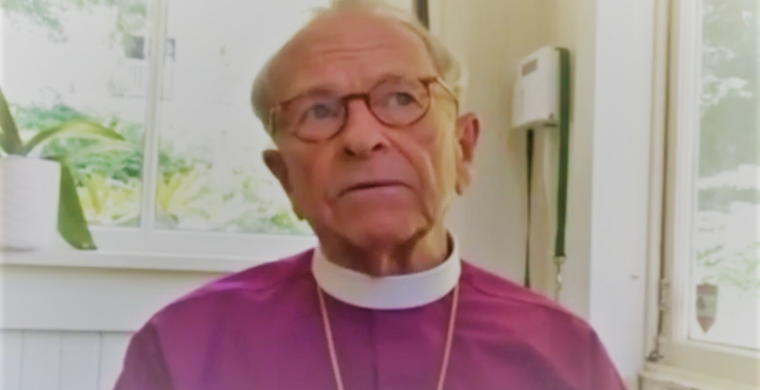Gay Episcopal Bishop: Religious Liberty is Oppressive
By Kate Cvancara
https://juicyecumenism.com/2020/07/23/religious-liberty-oppression/
July 23, 2020
Conservative Christians are using religious liberty as a basis to oppress the marginalized as well as traumatize parents of children who identify as LGBTQ, according to a retired Episcopal Church bishop and a filmmaker.
Retired New Hampshire Bishop Gene Robinson and filmmaker Daniel Karslake were hosted for a discussion by the Reconciling Ministries Network (RMN), an unofficial United Methodist LGBTQ caucus, on July 15. The bishop and the film producer equated God's purposes with intersectional identity politics of the Left.
Robinson was the first man openly in a same-sex partnership to be consecrated a bishop in the Episcopal Church and the worldwide Anglican Communion. Karslake is known for his 2007 film "For the Bible Tells Me So," screened at the Sundance Film Festival, which was critical of conservative evangelical subcultures.
Karslake's new film "For They Know Not What They Do" was the starting point for discussion, with Karslake and Robinson noting tensions parents face when a child "comes out" as LGBTQ within a non-affirming community. Fear at the loss of community, status, and friends is almost as daunting for parents as it is for a child "especially," Karslake argued, "when faith is in the mix."
According to the speakers, conservative Christians uncritically parrot false conceptions of love that their churches teach. Mantras like "hate the sin but not the sinner" can be sincerely purported as God-approved perspectives. If love can be non-affirming, then conservative Christians, the two speakers argued, believe they are obeying God.
However, the speakers observed that when an individual in a non-affirming community publicly identifies as LGBTQ, "it is rare that a conservative Christian isn't changed." Some will see that their love was actually hate, but others will have a difficult time recognizing their error and plunge deeper into their conservative buffers.
In these scenarios, the speakers paint the conservative Christian as a passive loser. They do what their churches tell them, retreat into the safety of uniformity, and reject considering LGBTQ issues until directly touched by a personal event.
Karslake stated that conservative Christians turn their disdain towards transgenderism because they "know that they lost the gay thing." The speakers' assumptions of conservative Christians do not leave room for them to thoughtfully, proactively, and lovingly disagree with Leftist perspectives.
To be fair, Robinson noted that LGBTQ individuals likewise prefer their bubbles. Safe spaces of affirmation are kept safe by limiting contact with other communities. Therefore, he maintained that it is imperative for affirming allies to speak up. Karslake concluded that, though his films are accused of preaching to the choir, they must when the "choir isn't singing loud enough."
Another major hurdle to the LGBTQ community, according to Karslake, is a monopolization conservatives have on religious liberty. Personal connections are a crucial method--if not, the only available method--against the forces of politicized faith because conservatives have misconstrued and abused religious freedom to support special interests "in oppressive ways."
The speakers insisted that religious motives are both oppressive and can result in atrocities. They cited the Pulse nightclub shooting, in which a 29-year-old man killed 49 people and wounded 53 others inside an Orlando nightclub frequented by gay men.
"There was religion all over that," Karslake argued, a seeming reference to the perpetrator's Muslim background. "There was religion behind the gun. There was definitely religion in front of the gun because so many of these young people at pulse...this was church for them."
Neither speaker clarified what kind of "religious motives" might be behind the atrocity, leaving the listener to suppose that conservative arguments in favor of religious freedom and conscience protection somehow leads to massacres.
Robinson and Karslake declared that congregants must advocate for the oppressed in all intersections.
"I can't preach a pride sermon and not make a connection between us," Robinson stated. "When I see an LGBTQ person being sexists or racist or whatever I want to grab them and shake them and ask, 'haven't you learned anything from this experience?!"
"Intersectionality has always been there" Karslake maintained. Therefore, other justice movements should be supported and "stand up for the oppressed in whatever way" in whatever form that oppression presents.
If we do not support every movement perfectly, it is "okay with God," Robinson confirmed. Progress, he believes, is still happening as evidenced by significant opposition within the Episcopal Church to Robinson's 2003 consecration and less controversy around four other bishops who identify as gay in their later consecrations.
Robinson concluded that "love wins" because "God is love."














